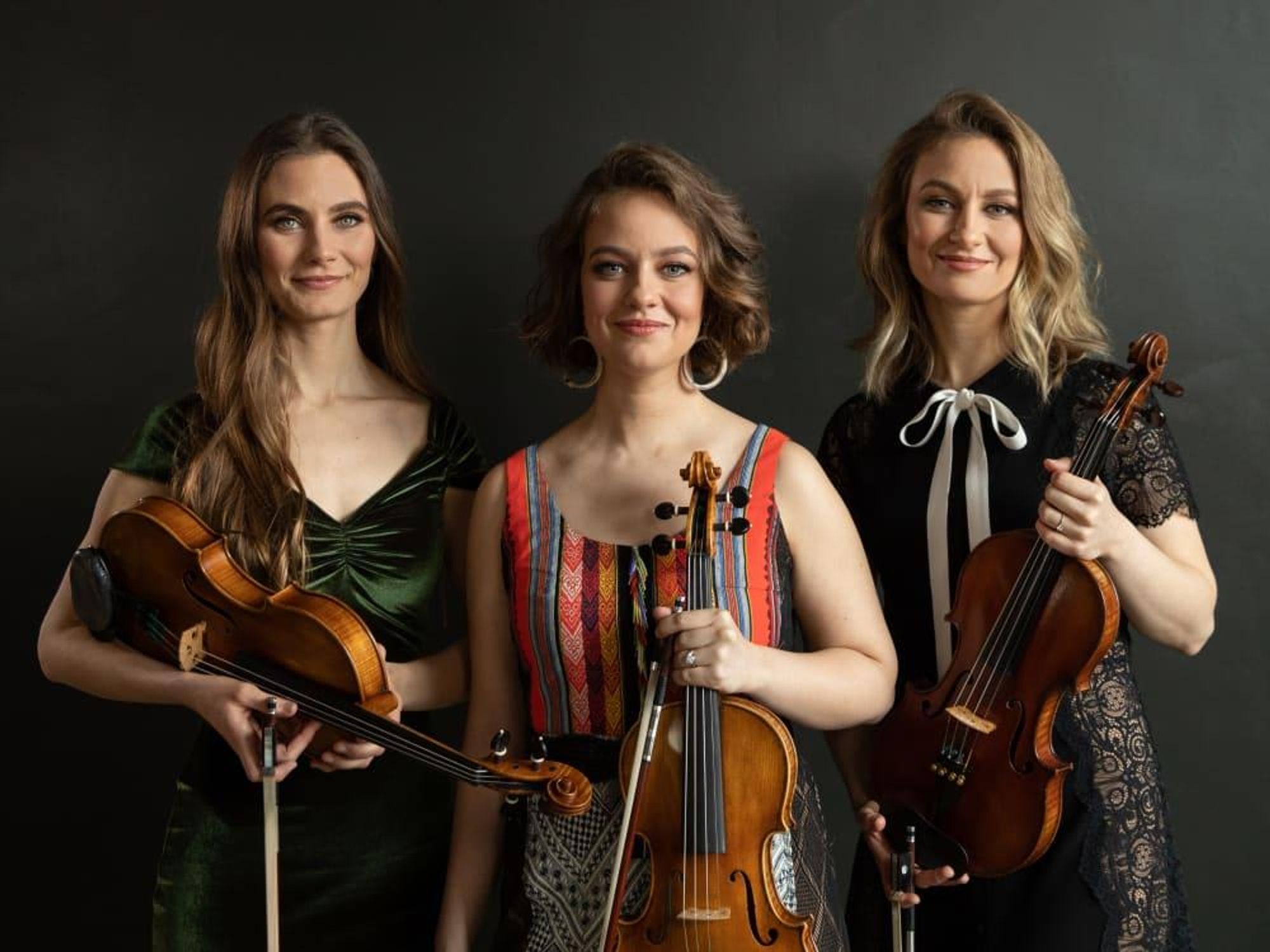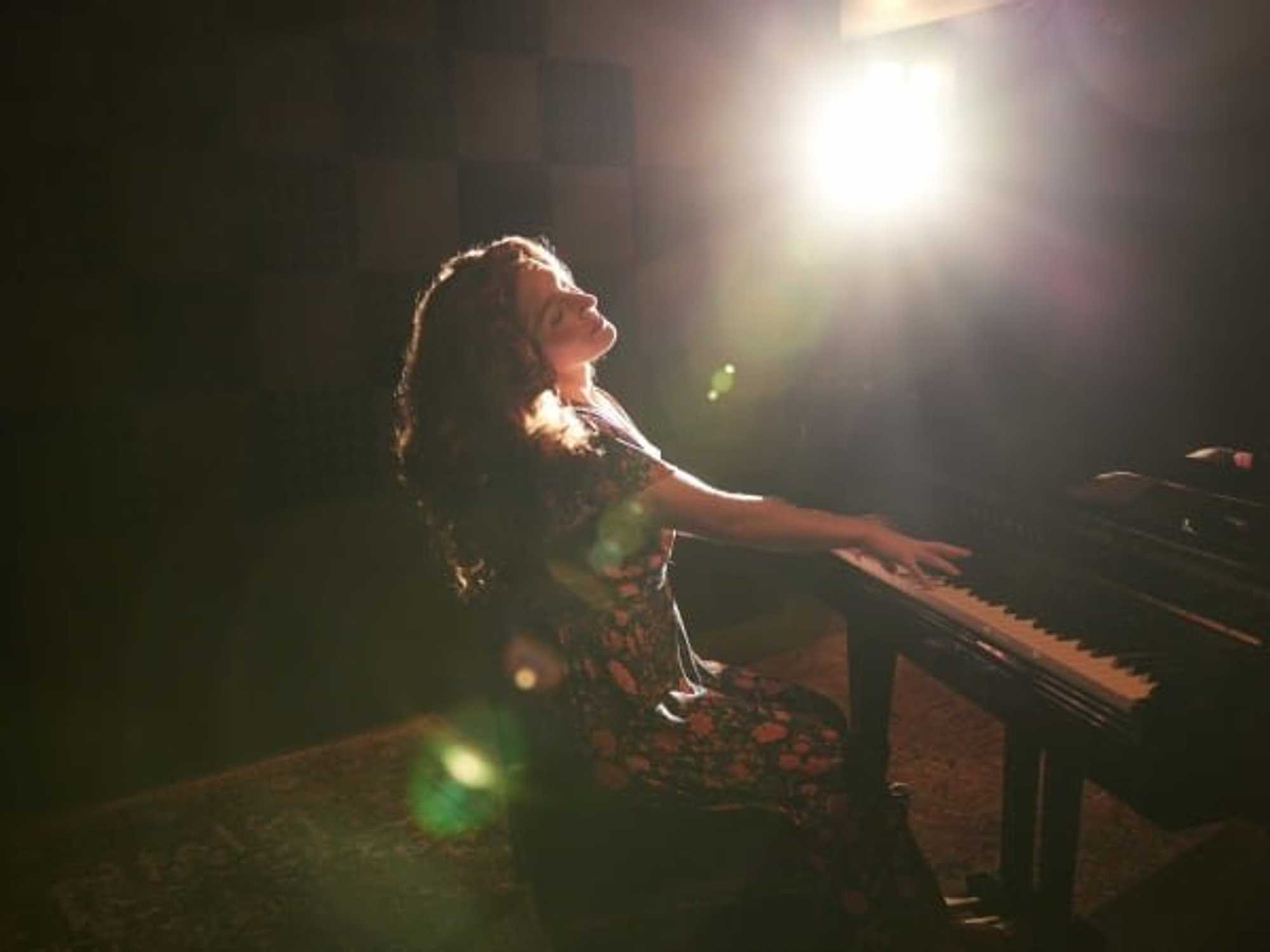Back on stage
Swingy sister act brings fiddle fire to Asleep at the Wheel's Fort Worth Symphony show

For Texas fiddler and harmony vocalist Hulda Quebe, one-third of the acclaimed Western Swing trio The Quebe Sisters, getting a gig during a pandemic provides for a big dose of much-needed normalcy.
“It feels good to work,” she says frankly.
Hulda, along with her sisters Sophia and Grace, will join Texas legends Asleep at the Wheel as special guests on the Fort Worth Symphony Orchestra’s opening Pops Series concert September 11-13. Taking place at Will Rogers Auditorium with a socially-distanced orchestra and safety precautions in place will help provide a safe experience for patrons, FWSO says.
“It’s going to be one of the first gigs we’ve had this year,” says Hulda. “It will be a nice, fun change for 2020 to get out and play a show.”
The trio, who’ve toured together for more than 15 years at concert halls and festivals around North America, Europe, and as far as Russia, released their latest album, The Quebe Sisters, in late 2019.
They were set for a busy 2020, touring while pioneering what they call "progressive Western swing." The category pulls from multiple genres including jazz-influenced swing, Texas-style fiddling, and Western music, and incorporates their three fiddles and three-part harmony along with an upright bass and archtop guitar by two bandmates.
Instead, the sisters — who are originally from Krum and lived in both Burleson and Fort Worth — spent much of that planned 2020 touring season apart from each other during a self-imposed quarantine.
“It was over a month-and-a-half. It was the longest we had gone without seeing each other our entire lives,” says Hulda.
The seriousness of the pandemic became even more real when Ray Benson, front man of Asleep at the Wheel, contracted the COVID-19 virus himself back in March. He’s since recovered.
“It definitely makes it close to home when people that you know get it,” says Hulda.
Benson and the Quebe Sisters have had a long relationship musically, she says. The trio has toured with them in the past and joined them on their 2015 album Still the King: Celebrating the Music of Bob Wills and His Texas Playboys for a duet with Willie Nelson. The sisters were also set to join Asleep at the Wheel for a few dates during their 50th anniversary tour earlier this year.
But aside from one recent socially-distant private “porch party,” The Quebe Sisters — like many musicians — have had gig after gig postponed or flat-out canceled since the pandemic began in March.
“The entire music industry has been decimated by this; I’m not going to lie,” says Hulda. “Everything has basically moved to 2021 at this point, and we’re just desperately hoping things get back to normal. It’s been pretty horrible.”
Not only are musicians are suffering financially, but so are music venues, she adds.
“We’ve already had gigs that have said we’ve lost all of our funding and we’re going to have to back out,” Hulda says. “We’re lucky we’re financially stable ourselves, but I know a lot of musicians aren’t.”
However, folks in the music industry are creative, Hulda says, and that creativity will help the industry persevere through the pandemic and flourish in the end.
“The arts have always survived economic downturn,” Hulda says. “My older sister Grace said it best: People always want music and they want something to look forward to when things gets really bad.”
Hulda predicts more venues will think outside the box when it comes to hosting socially-distanced opportunities for patrons to hear live music, and musicians are using the shutdown to dig deep into their own creativity, strengthening their artistic muscles.
“We’re continuing to study our craft, especially this year being at home. It honestly has allowed us to a lot of flexibility to try new things, separately,” says Hulda. “Western swing is kind of a no-rules genre because you kind of do whatever you want. Right now we have no drums, but we might change that. We only have one guitar, but that might change in the future.”
Hulda, Sophia, and Grace live separately now, but still nearby each other in Dallas. Hulda says arguing and bickering while working with siblings can be expected, but the trio has always gotten along really well, even when they were touring and living together during their teenage years.
“Now that we’re all adults, we’ve moved into our different roles. But we’re really in sync with what we want musically,” Hulda says. “I think being siblings, we have a level of synergy you can’t get any other way than having spent so much time together — all the conversations and the work and the practicing and living together. Being apart (during the pandemic) was different, but for us it was healthy. It made us all appreciate and value what we do for a living.”
Now that COVID-19 is “here to stay, in a way,” says Hulda, the music industry is figuring out how to move on with life while staying as safe as possible. That might mean fewer fans, more outdoor gigs, and spaced-out seating. Backstage parties might also be exchanged for socially-distant “hellos” from a wide open parking lot. Hulda is fine with all of it.
“We’re just happy to see our friends and play some music.”
---
"Fort Worth Symphony Orchestra presents Asleep at the Wheel: Celebrating 50 Years" takes place September 11-13 at Will Rogers Auditorium. For more information and tickets, $35-$99, visit the FWSO website.
